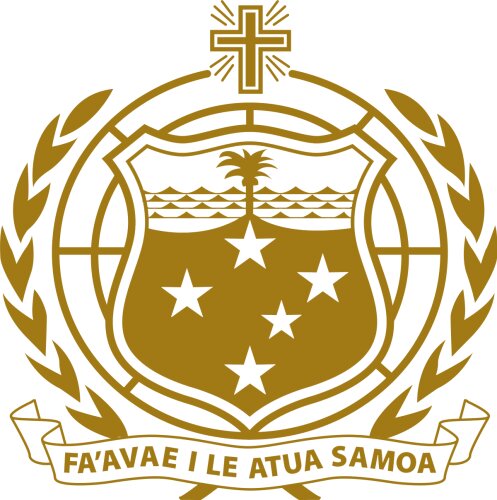Best DUI & DWI Lawyers in Apia
Share your needs with us, get contacted by law firms.
Free. Takes 2 min.
List of the best lawyers in Apia, Samoa
About DUI & DWI Law in Apia, Samoa
Driving Under the Influence (DUI) and Driving While Intoxicated (DWI) are serious offenses in Apia, Samoa, as they are in many parts of the world. These offenses typically refer to operating a vehicle while impaired by alcohol or drugs. Samoa takes traffic safety seriously, and therefore, the legal framework surrounding DUI and DWI is designed to deter individuals from driving under the influence and to penalize those who do. The consequences for DUI/DWI can include fines, license suspension, and even imprisonment, depending on the severity of the offense.
Why You May Need a Lawyer
Legal representation is often necessary in DUI and DWI cases due to the complexity of the legal procedures and the severity of potential penalties. Individuals may require a lawyer for the following reasons:
- To navigate legal proceedings and ensure their rights are protected.
- If they are repeat offenders and face harsher penalties.
- To challenge the evidence or procedures used during the arrest (e.g., breathalyzer tests).
- If they were involved in an accident causing injury or damage while allegedly under the influence.
- To negotiate plea bargains or seek reduced sentences.
Local Laws Overview
In Apia, Samoa, DUI/DWI offenses are governed by traffic legislation and enforced by local police authorities. Key aspects include:
- The legal blood alcohol concentration (BAC) limit for drivers. Exceeding this limit is considered illegal.
- Strict penalties for refusing to undergo breathalyzer or field sobriety tests.
- Enhanced penalties for high BAC levels or involvement in accidents.
- Provisions for mandatory education or rehabilitation programs for offenders.
- The possibility of vehicle impoundment for certain offenses.
Frequently Asked Questions
What is the legal BAC limit in Samoa?
The legal blood alcohol concentration (BAC) limit in Samoa for drivers is usually 0.08%. However, specific limits may apply to different categories of drivers, such as commercial drivers.
What happens if I refuse a breathalyzer test?
Refusing a breathalyzer test in Samoa can result in automatic penalties, which may include fines, license suspension, or other consequences as per local laws.
Can a DUI/DWI charge be expunged from my record?
The possibility of expunging a DUI/DWI charge from your record depends on local laws. Legal counsel can provide guidance based on your specific situation.
How long does a DUI/DWI case typically take to resolve?
The duration of a DUI/DWI case can vary based on its complexity, the court's schedule, and whether you contest the charges. Simple cases might resolve in months, while contested cases could take longer.
What are the penalties for a first-time DUI offense?
Penalties for a first-time DUI offense can include fines, mandatory education programs, and license suspension. The exact penalties may vary based on circumstances and local laws.
Can I fight a DUI/DWI charge?
Yes, you can contest a DUI/DWI charge. A lawyer can assist in examining the evidence and building a defense to challenge the validity of the charges.
Are there increased penalties for repeat offenders?
Yes, repeat offenders often face more severe penalties, including longer license suspensions, higher fines, and possible incarceration.
Do DUI/DWI offenses affect my insurance?
Yes, being charged or convicted of a DUI/DWI offense can result in higher insurance premiums or difficulty obtaining insurance.
Can I still drive while my case is pending?
Whether you can drive while your case is pending depends on any administrative actions taken against your license, such as a suspension. Consult with legal counsel to understand your specific situation.
Is a plea bargain possible in a DUI/DWI case?
Plea bargains may be possible in DUI/DWI cases, often leading to reduced charges or penalties. Your lawyer can negotiate with the prosecution on your behalf.
Additional Resources
For those seeking more information or assistance, the following resources can be helpful:
- Ministry of Police: They enforce traffic laws and can provide insights into DUI/DWI enforcement.
- Samoa Law Society: They can help you find a qualified attorney specializing in DUI/DWI cases.
- Local Law Libraries: Provide access to legal texts and case law that can be informative.
Next Steps
If you require legal assistance for a DUI or DWI charge, consider the following steps:
- Consult with a legal professional specializing in DUI/DWI cases to understand your rights and options.
- Gather all relevant documentation related to your case, including police reports, test results, and any correspondence.
- Be proactive and responsive to legal proceedings to ensure timely and effective handling of your case.
- Engage in rehabilitation or educational programs if required or recommended as part of your plea or sentencing.
Lawzana helps you find the best lawyers and law firms in Apia through a curated and pre-screened list of qualified legal professionals. Our platform offers rankings and detailed profiles of attorneys and law firms, allowing you to compare based on practice areas, including DUI & DWI, experience, and client feedback.
Each profile includes a description of the firm's areas of practice, client reviews, team members and partners, year of establishment, spoken languages, office locations, contact information, social media presence, and any published articles or resources. Most firms on our platform speak English and are experienced in both local and international legal matters.
Get a quote from top-rated law firms in Apia, Samoa — quickly, securely, and without unnecessary hassle.
Disclaimer:
The information provided on this page is for general informational purposes only and does not constitute legal advice. While we strive to ensure the accuracy and relevance of the content, legal information may change over time, and interpretations of the law can vary. You should always consult with a qualified legal professional for advice specific to your situation.
We disclaim all liability for actions taken or not taken based on the content of this page. If you believe any information is incorrect or outdated, please contact us, and we will review and update it where appropriate.










